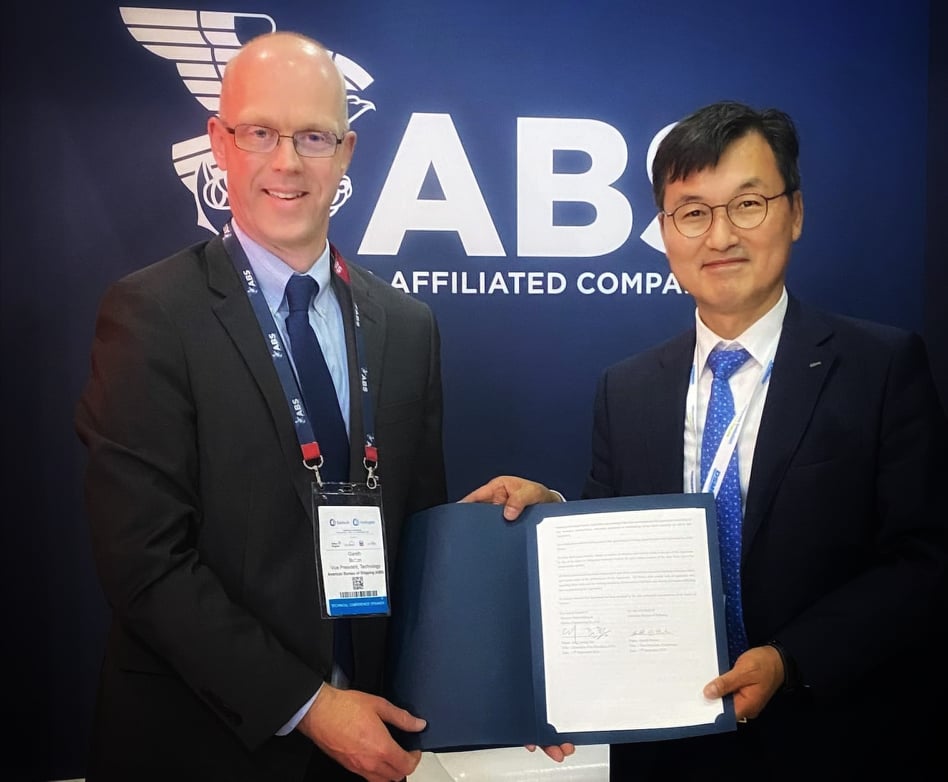Design Allows Future Carbon Capture Onboard Installation
(MILAN) ABS has awarded approval in principle (AIP) to Daewoo Shipbuilding & Marine Engineering Co. Ltd. (DSME) for its design of cargo tanks on board super-large, liquefied carbon dioxide (LCO2) carriers.
The cargo tank of approximately 15,000 cbm will be mounted on a 100,000 cbm LCO2 carrier and is designed for operational efficiency in a vertical asymmetric structure to maximize the loading weight, so enough space can be provided to install liquefied natural gas (LNG) propulsion engines and carbon capture devices for future vessel designs.
“If carbon value chains are to continue to mature globally, safe and efficient carbon transport is going to prove key, as is carbon capture.
This project is noteworthy for the way it not only advances CO2 transport with its introduction of significant capacity but allows for the introduction of carbon capture on board, which may prove to be a critical technology in the energy transition.

ABS is proud to be able to use our insight and experience to support this project,” said Patrick Ryan, ABS Senior Vice President, Global Engineering and Technology.
“We plan to develop new materials for LCO2 carrier cargo tanks and develop new ship designs that can increase ship owners’ operational efficiency, and we expect to maintain DSME’s overwhelming technology in the LCO2 carrier sector, which is a major concern of the carbon capture market,” said Jun-Lyoung Seo, DSME Executive Vice President and Head of Engineering and Technology Unit.
Find more information about ABS services related to carbon capture utilization and storage here.
About ABS
ABS, a leading global provider of classification and technical advisory services to the marine and offshore industries, is committed to setting standards for safety and excellence in design and construction.
Focused on safe and practical application of advanced technologies and digital solutions, ABS works with industry and clients to develop accurate and cost-effective compliance, optimized performance and operational efficiency for marine and offshore assets.














